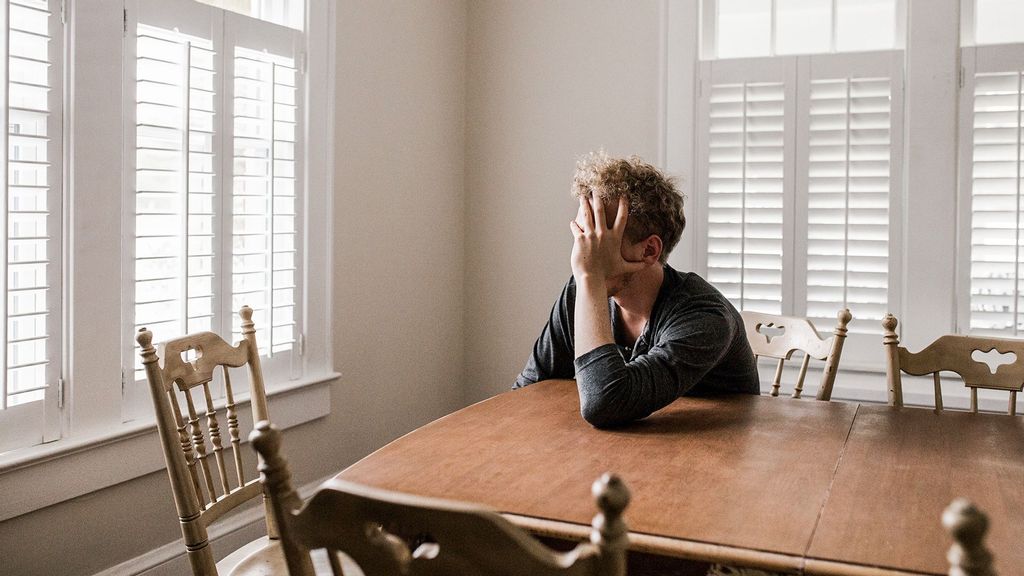WASHINGTON — Research led by Ohio State University suggests that feeling like leisure is wasteful and unproductive may lead to less happiness and higher levels of stress and depression.
The study “Viewing leisure as wasteful undermines enjoyment” is published in “the Journal of Experimental Social Psychology.”
In a series of studies, researchers examined the effects of a common belief in modern society: productivity is the ultimate goal, and time’s wasted if you’re having fun.
People who most strongly agreed with this belief not only enjoyed leisure less but also reported poorer mental health outcomes, said Selin Malkoc, co-author of the study and an associate professor of marketing at the Ohio State University’s Fisher College of Business.
“There is plenty of research which suggests that leisure has mental health benefits and that it can make us more productive and less stressed,” said Malkoc.
“But we find that if people start to believe that leisure is wasteful, they may end up being more depressed and more stressed.”
One bright side — some skeptical people could enjoy fun activities if leisure is part of a larger goal and not an end in itself.
“If leisure can be framed as having some kind of productive goal, that helps people who think leisure is wasteful to get some of the same benefits,” said Rebecca Reczek, co-author, and professor of marketing at Ohio State University.
In one study, 199 college students rated how much they enjoyed various leisure activities and completed assessments that measured their levels of happiness, depression, anxiety, and stress.
They were also asked how much they agreed with five statements assessing the degree to which they believed leisure is wasteful such as “time spent on leisure activities is often wasted time.”
Results showed that the more the participants believed leisure to be wasteful, the less they enjoyed leisure activities.
That was true whether the leisure activity was active (exercising) or passive (watching TV), social (hanging out with friends), or solitary (meditating).
In addition, the more they thought leisure was wasteful, the lower their levels of happiness and the higher their levels of depression, anxiety, and stress.
In one study, 302 online participants were asked what they did to celebrate Halloween a few days after the holiday in 2019. Some activities they could choose from were fun for their own sake, like going to a party. Others served a larger goal, such as taking your kids out trick or treating.
The participants were asked to rate how much they enjoyed their Halloween experience.
Results showed that those who thought leisure was more wasteful reported less enjoyment of activities, like parties, that were only about the fun.
“But those who participated in fun activities that fulfilled responsibilities, like trick or treating with your kids, didn’t see such a reduction in how much they enjoyed their Halloween,” said Gabriela Tonietto, co-author and an assistant professor of marketing at the Rutgers Business School.
The negative view of leisure is not just an American issue. One study, which compared people in the United States, India, and France, found that the French were less likely than those in the U.S. and India to believe leisure was wasteful — as is consistent with cultural stereotypes. But for those in France who did disdain leisure, the harmful effects were the same.
“We live in a global society, and there are people everywhere that hear the same messages about how important it is to be busy and productive,” said Reczek.
“And once you believe that and internalize the message that leisure is a waste, our results suggest you’re going to be more depressed and less happy, no matter where you live.”
The researchers were struck by how the negative views of leisure affected anything fun, no matter the situation or how short the leisure activity was.
In one study, college student participants were asked to watch a short funny cat video in the middle of other parts of an experiment. Some read articles beforehand that touted leisure as a way to manage stress and increase energy. Even then, the same effects persisted.
“These are students who are coming into the lab to answer surveys, which can be boring. In the middle of that, we give them a funny video to watch, which you would expect would be a nice break — and even then, some participants didn’t enjoy it as much,” said Malkoc.
“They had no way to use the time more productively. We were giving them a break from other, more boring activities. And still, those who believe leisure is wasteful didn’t think watching the videos was as fun as others did,” she said
The study showed it is not easy to change people’s beliefs about the value of leisure. So a different approach may be needed, the researchers said.
“It may be helpful to think about the productive ways that individual leisure activities can serve their long-term goals,” said Tonietto.
In other words, connect each leisure activity to something you want to accomplish, she said.
“Find ways to make fun activities part of a larger goal in your life,” said Malkoc.
“Think about how it is productive, instrumental, and useful.”
Mike Norton of Harvard University was also a co-author.
(With inputs from ANI)
Edited by Ojaswin Kathuria and Nikita Nikhil
The post Guilt About Leisure Ups Stress And Depression appeared first on Zenger News.

